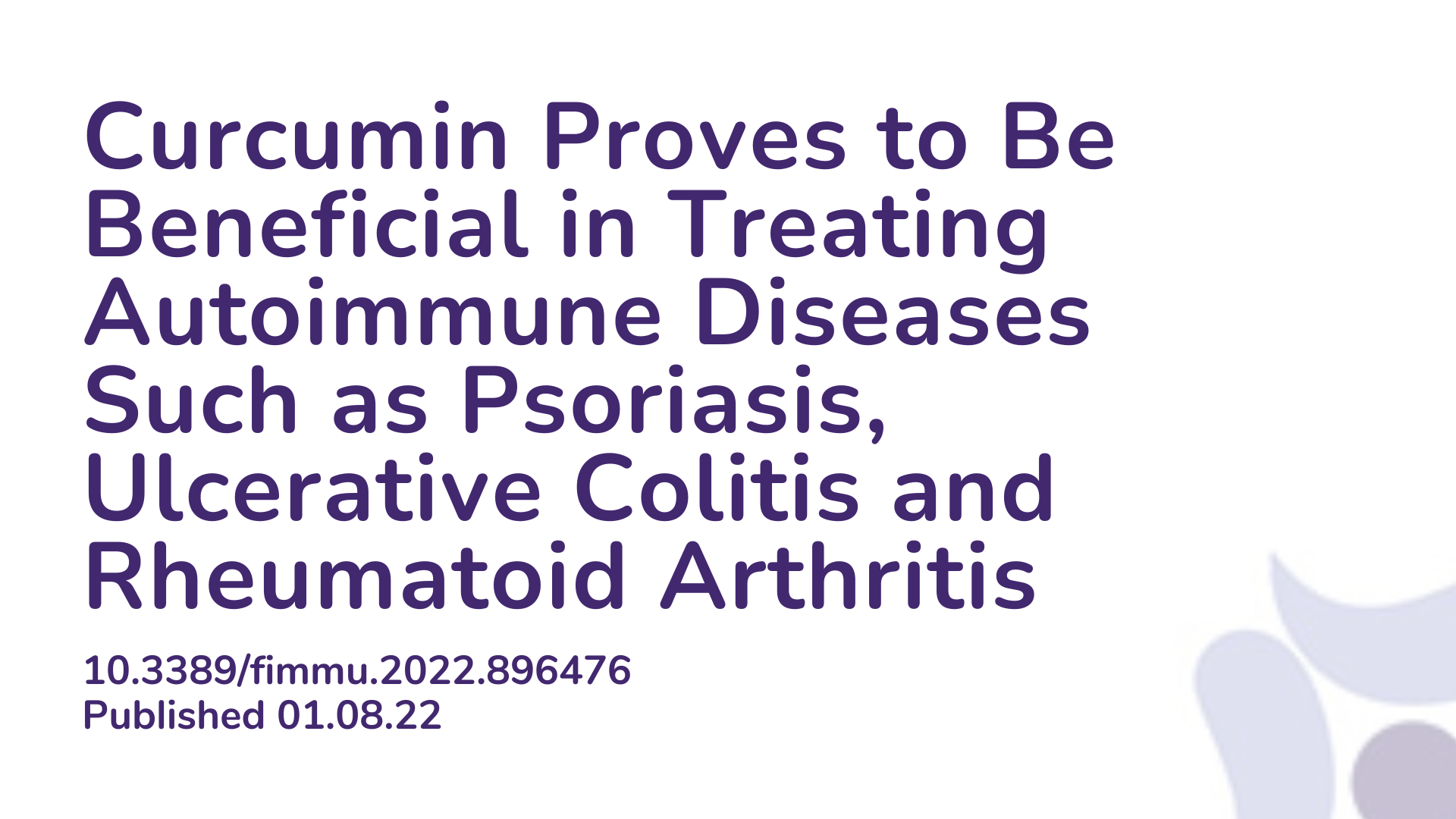Summary: Turmeric has been used as a medicinal agent for centuries due to its active component curcumin. A number of studies have shown that curcumin has a positive impact on the immune system, is an antioxidant, inhibits inflammation, can act as an anti-tumor agent and much more. This current study is a “systematic review” which is a literature review of all the available evidence on curcumin to date. A total of 31 randomised controlled trial studies were included and the main aim and question to answer is whether curcumin is safe and effective for the treatment of autoimmune diseases such as ankylosing spondylitis, Behcet’s disease, Crohn’s disease, multiple sclerosis, oral lichen planus, psoriasis, rheumatoid arthritis, systemic lupus erythematosus, Takayasu arteritis and ulcerative colitis. The authors concluded that curcumin has beneficial clinical efficacy in the treatment of psoriasis, ulcerative colitis and rheumatoid arthritis. The clinical data reviewed did not prove efficacy for the remainder of the autoimmune diseases that were investigated, however much larger scale research is needed before a conclusion can be made.
Abstract:
Objective: To evaluate the randomized controlled trials (RCTs) of Curcumin and Curcuma longa Extract in the treatment of autoimmune diseases. Methods: Databases such as Embase, Web of Science, PubMed and The Cochrane Library were searched from the database establishment to February 2022 to collect RCTs of Curcumin and Curcuma longa Extract in the treatment of autoimmune diseases. Then the literature was screened and the data were extracted. Meta-analysis was performed using RevMan 5.3 software. Results: A total of 34 records were included, involving 31 RCTs and 10 types of autoimmune disease. Among them, ankylosing spondylitis (AS) involves one RCT, Behcet’s disease (BD) involves one RCT, Crohn’s disease involves two RCTs, multiple sclerosis (MS) involves two RCTs, oral lichen planus involves six RCTs, psoriasis involves two RCTs, rheumatoid arthritis (RA) involves five RCTs, systemic lupus erythematosus (SLE) involves two RCTs, arteritis involves one RCT, ulcerative colitis (UC) involves nine RCTs. Among them, most of the RCTs of ulcerative colitis (UC), oral lichen planus, RA showed that curcumin and curcumin extracts improved clinical or laboratory results. Crohn’s disease, MS, SLE, psoriasis included two RCTs; they all showed improvements (at least one RCT reported improvements in clinical outcomes). AS, BD and arteritis included only one RCT, and the clinical results showed improvement. However, due to the small number of RCTs and the small number of patients involved in each disease, there is still a need for more high-quality RCTs. Conclusion: Curcumin and Curcuma longa Extract had good clinical efficacy in the treatment of Psoriasis, UC and RA, so Curcumin and Curcuma longa Extract could be used in the treatment of the above diseases in the future. The results of Meta-analysis showed that Curcumin and Curcuma longa Extract did not show efficacy in the treatment of oral lichen planus, while Takayasu arteritis, SLE, MS, AS, BD and CD did not report sufficient clinical data for meta-analysis. Therefore, large-sample, multi-center clinical trials are still needed for revision or validation.
Article Publication Date: 01/08/2022
DOI: 10.3389/fimmu.2022.896476



